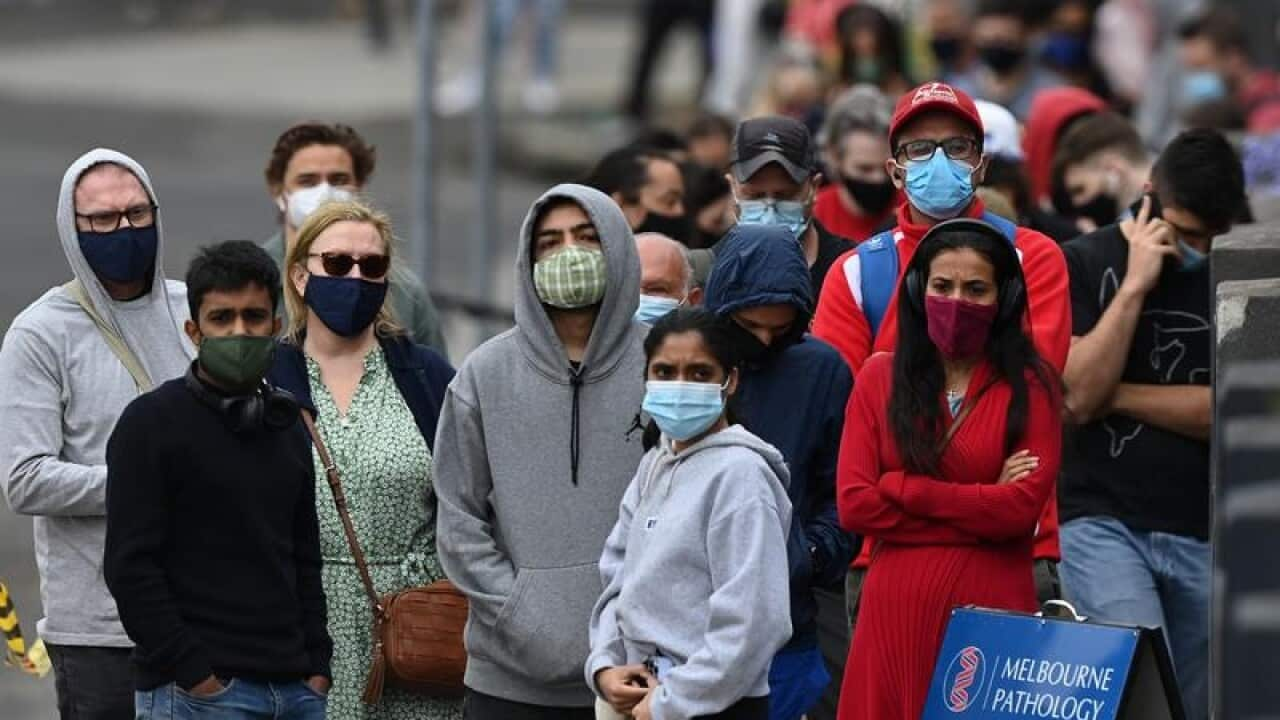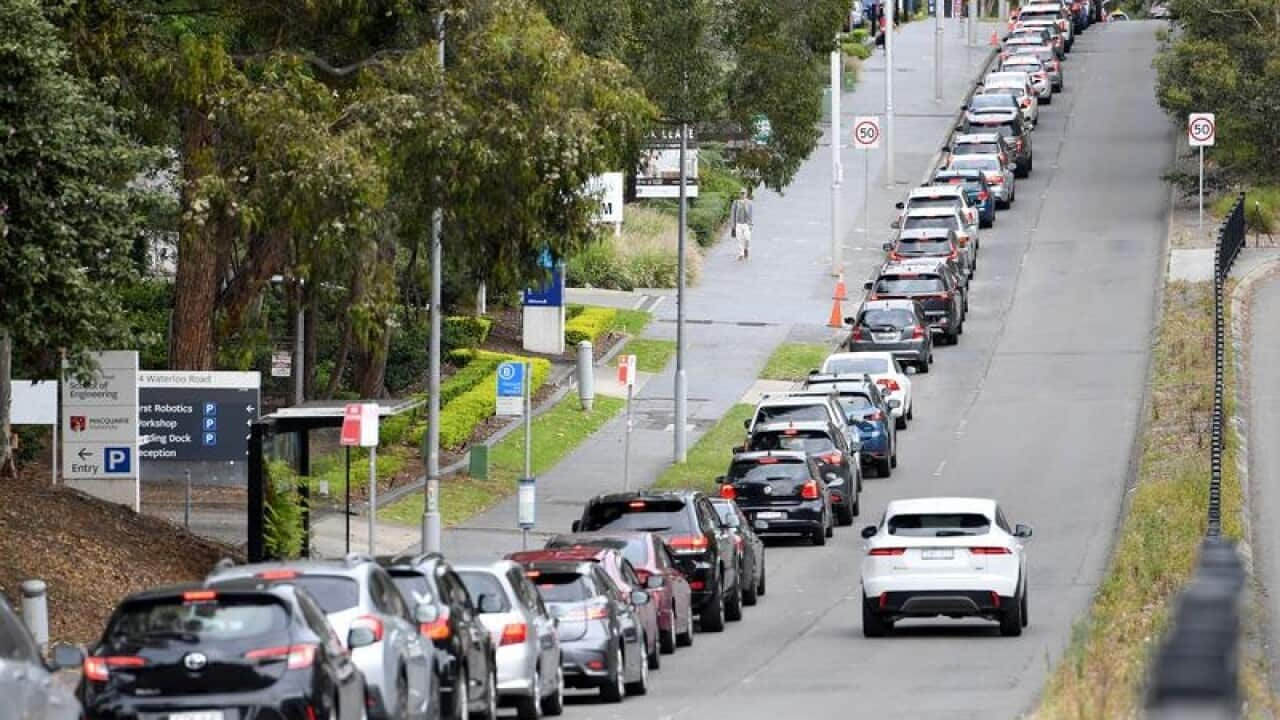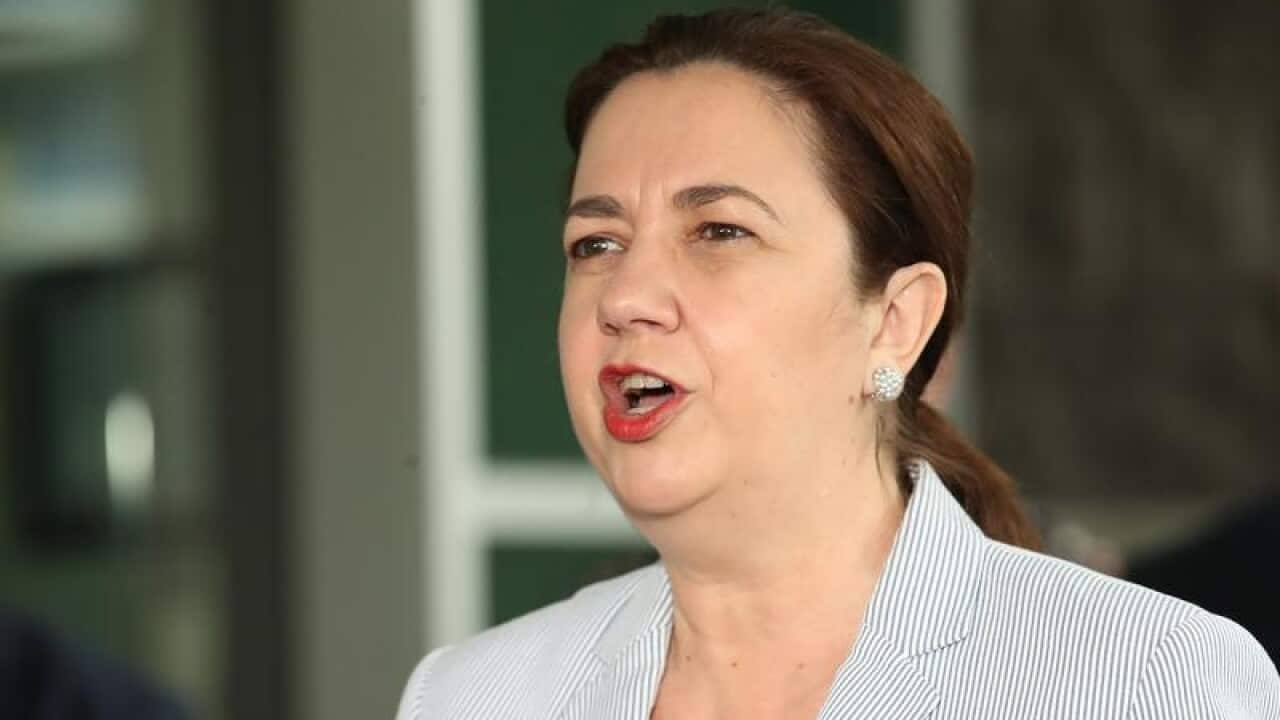Victoria has reported 2,005 new COVID-19 cases and 10 deaths, as stricter mask rules are re-imposed in response to Omicron.
From 11:59pm, face masks will be required in all indoor settings, except private homes, to help slow the spread of the Omicron variant. The rules are also being extended to cover all major events with over 30,000 people.
It will affect those aged eight years and over.
"Face masks will be required indoors and outdoors when moving around, although masks can be removed when seated outdoors," Victorian Acting Premier James Merlino said.
In contrast to Prime Minister Scott Morrison's insistence that mask mandates are not necessary, Victoria's Chief Health Officer Professor Brett Sutton said a mask mandate is "absolutely appropriate".
"[Masks] are a very small individual cost for us," he said. "They have a terrific impact on transmission, and that is as true for Omicron as for any variant."
"That is not to say that there is not a personal responsibility in this space, but there is a collective responsibility and a mandate makes a difference in that regard."
Thursday's daily case figure is the highest in Victoria since October 22 when the state recorded 2,160 cases. The new cases push the state's total active infections to 14,801.
A total of 398 patients are in hospital, including 72 in intensive care, with 39 on ventilators.
"Masks will help keep businesses open and they massively reduce the risk of transmission," Victorian Health Minister Martin Foley said.
"The modelling ... tells us that people wearing masks will significantly reduce the pressure on our hospitals and keep people safe."
At the press conference on Thursday, Acting Premier James Merlino also announced the state's vaccination booster program will be expanded, including $31 million to support the Commonwealth's booster program.
The state will also open an additional 28 pop-up vaccination sites in the coming weeks. Hours will be extended at the current 50 sites to 12 hours a day, seven days a week.
"This new investment will enable a massive scale-up to support a major expansion of our state-run vaccination centres," he said.
"The third dose is critical in our fight against this new variant and we've got this window of opportunity.
"We're seeing what's happening in the northern hemisphere in the colder months ... getting the third dose is so critical to combatting [the virus] and we've got to take up that opportunity."
The state government is also recommending some "commonsense measures", including working from home where possible and encouraging hospitality venues to offer seated service to discourage patrons moving around.
The seven-day hospitalisation average is steady at 391.
Health authorities processed 85,112 results on Wednesday, while 16,758 people were vaccinated in state-run hubs.
Victoria's testing system continues to strain under the weight of holidaymakers seeking a swab for interstate travel, with at least 20 sites across Melbourne temporarily closed as of 9am after reaching capacity.
Mr Weimar said more than a quarter of total tests in recent days had come from people needing a negative result to journey to Queensland, South Australia, Tasmania and the Northern Territory.
He blamed the long queues and waiting times on the "bureaucratic" requirement, and hopes other jurisdictions will move to a "more sensible arrangement".
The Australian Health Protection Principal Committee in the next fortnight will report back to states and territories on whether PCR tests should be required for interstate travel, or can be replaced by rapid antigen tests.











